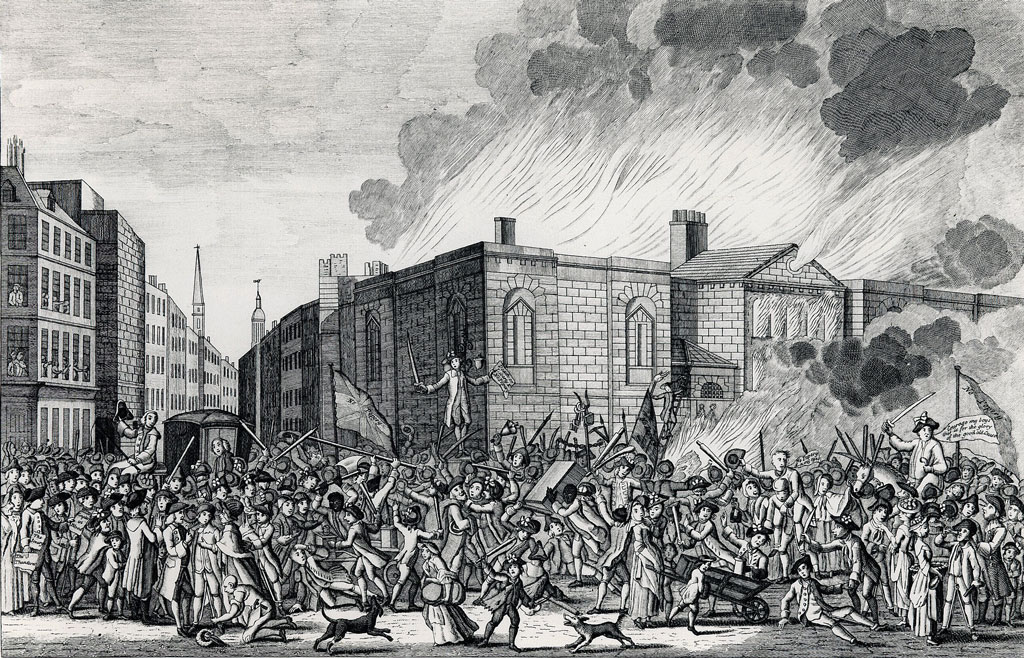
Disaffected citizens prepared to run riot are nothing new, says Geoffrey Bindman
Apart from the Civil War in the mid-17th century, the Gordon Riots in 1780 remain the most serious outbreak of public disorder in English history. A century after the Popish Plot (see my article ‘Lessons from Scroggs LCJ’), anti-Catholic hostility had abated, but arbitrary restrictions on the rights of Catholics remained on the statute book, including their disqualification from service in the armed forces. Needing more soldiers to combat the American colonists fighting for their independence, Lord North’s government introduced legislation to allow Catholics to enlist. Many were glad to do so, but the hard-line Protestant Association, led by Lord George Gordon—Scottish aristocrat, Etonian demagogue and member of the English Parliament—was bitterly opposed. Lord George organised a petition to Parliament to be delivered by him at the head of a procession of no fewer than 40,000 supporters.
Inevitably, when this vast throng descended on Whitehall, after marching from its assembly point at St George’s Fields—later the site of Waterloo Station—violence broke









